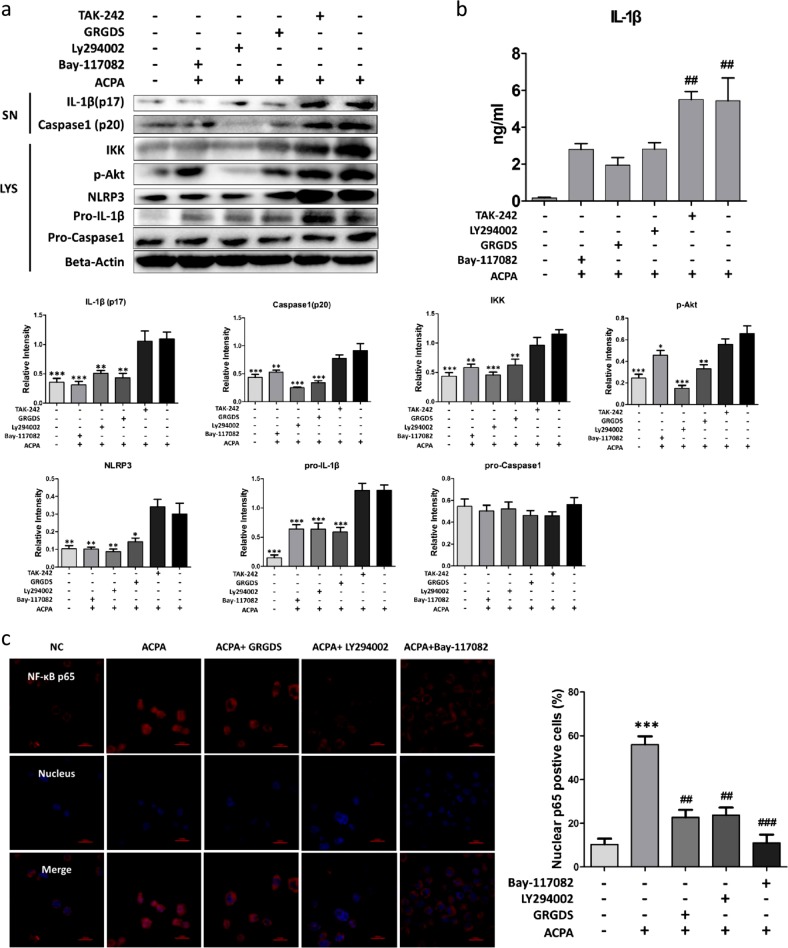Fig. 4.
The CD147/Integrinβ1/Akt signaling pathway participates in anti-citrullinated protein antibody (ACPA)-induced interleukin (IL)-1β production. a Peripheral blood mononuclear cell (PBMC)-derived macrophages were pretreated with various inhibitors before stimulation with ACPAs for 8 h. IL-1β, pro-IL-1β, and β-actin were detected by immunoblotting. Caspase1 (p20) and IL-1β (p17) in the supernatants and pro-Caspase1, pro-IL-1β, NLRP3, p-Akt, and IKK in the cell lysates were detected by western blotting after the indicated treatments. Each experiment was performed at least three times. *p < 0.05, **p < 0.01, and ***p < 0.001 (other groups compared with group six). SN supernatant, LYS cell lysate. b After pretreatment with various inhibitors, PBMC-derived macrophages were stimulated with ACPAs. IL-1β production in the culture medium was measured by enzyme-linked immunosorbent assay. c After pretreatment with various inhibitors, PBMC-derived macrophages were stimulated with ACPAs and probed with an anti-human nuclear factor (NF)-κB p65 antibody and a Cy3-conjugated secondary antibody. Nuclei were stained with Hoechst 33342. NF-κB p65 nuclear translocation in the cells was observed with a confocal laser scanning microscope. The number of cells positive for nuclear localization of p65 out of at least 500 cells was counted, and the data are presented as the means ± SEMs. Scale bars = 20 μM

